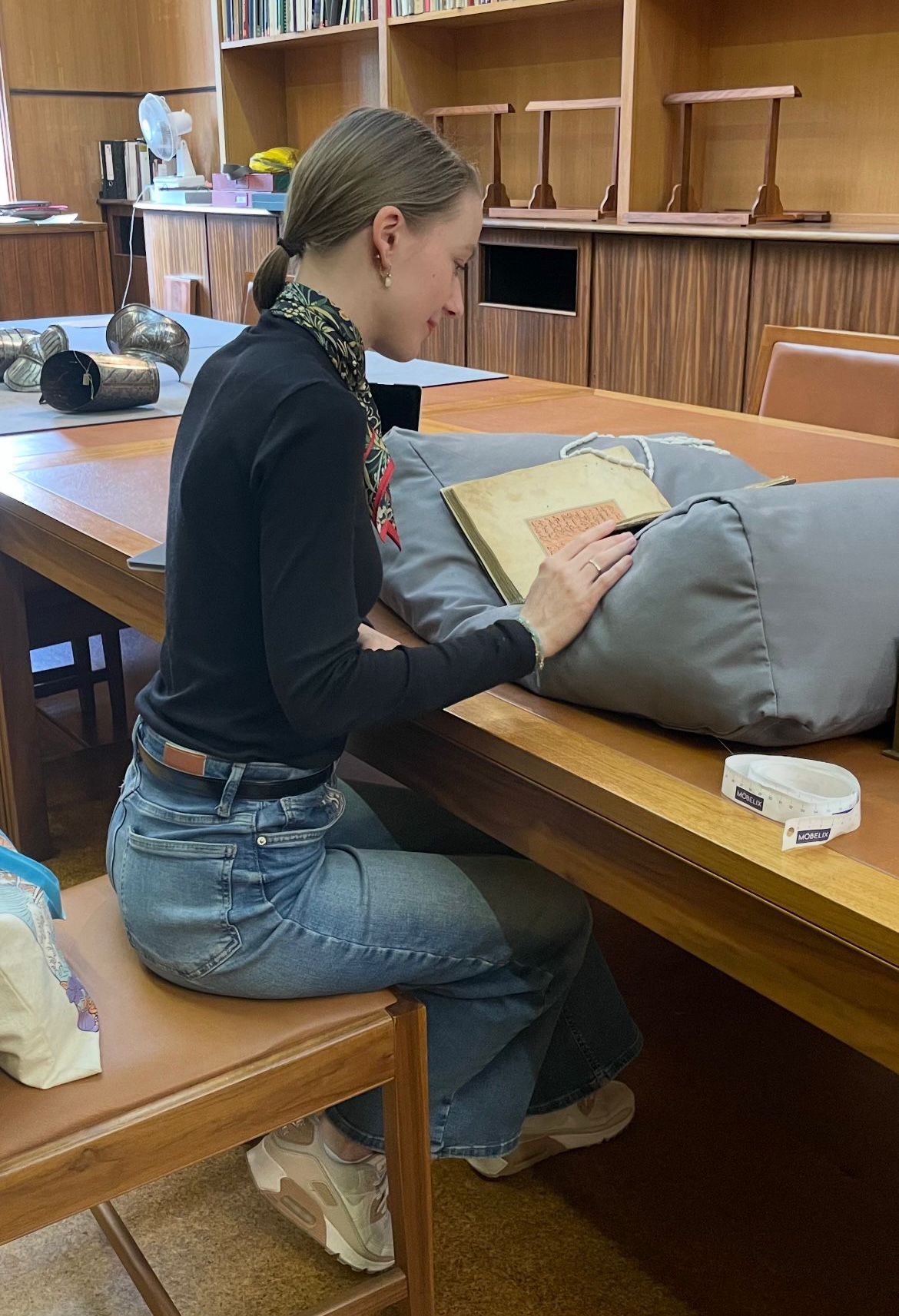In May, Theresa traveled to Cambridge, where her time was spent at the renowned Fitzwilliam Museum, whose rich holdings provided a fertile ground for exploring codicological features and manuscript biographies.
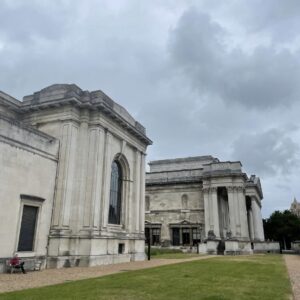
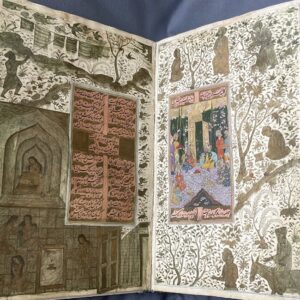
One of her key research goals was to study a group of Islamic manuscripts, particularly those once owned by P. C. Manuk (d. 1945) – an Armenian-born collector and scholar whose bequest significantly enriched the Fitzwilliam’s Islamic collection. Manuk, known for his interest in Persian and Islamic art, amassed a notable group of manuscripts that are still catalogued with care today. A highlight of her visit was MS 261-1949, a copy of the Būstān by Saʿdī. This manuscript stands out for its fascinating features: the text panels are dyed a delicate pink and dusted with gold, traces of which shimmer into the outer margins. The manuscript’s margins themselves are remarkable – some contain drawings painted in brass, suggesting a second layer of visual engagement. These elements are at the heart of Theresa’s investigation into the codicological aspects of the manuscript, with a particular focus on how these “decorative” interventions relate to the manuscript’s biography and wider networks of use, ownership, and modification. As part of the project, Theresa is developing a broader framework for the “archaeology of the book” – looking not only at content and style but also at the layers of physical alterations that signal the evolving afterlives of manuscripts across regions and centuries. She will soon give a talk sharing some of her findings from Cambridge.
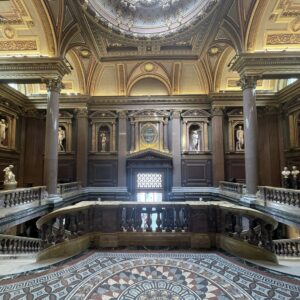
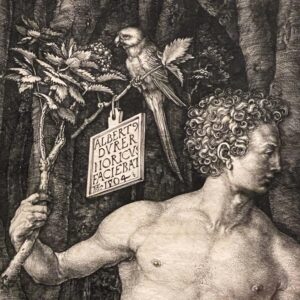
Beyond her scholarly focus, Theresa enjoyed the rich cultural offerings of the Fitzwilliam Museum. She explored the Albrecht Dürer exhibition, where she was particularly impressed by the museum’s meticulous restoration work on Dürer’s engravings. The museum’s Islamic art galleries also stood out with their radiant lustre ceramics and exquisite Iznik wares, offering a glimpse into the vibrant world of Islamic material culture.
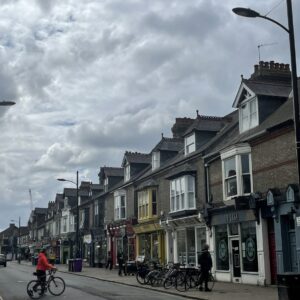
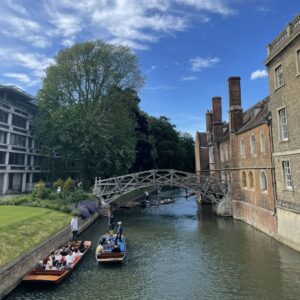
Outside the museum walls, the city of Cambridge itself left a lasting impression. With its majestic colleges, historic streets, and vibrant intellectual atmosphere, the town proved to be an ideal setting for reflection and research. Theresa will return in August to delve deeper into the Fitzwilliam’s collection, continuing her work on manuscript materiality and the global history of decorated paper.
